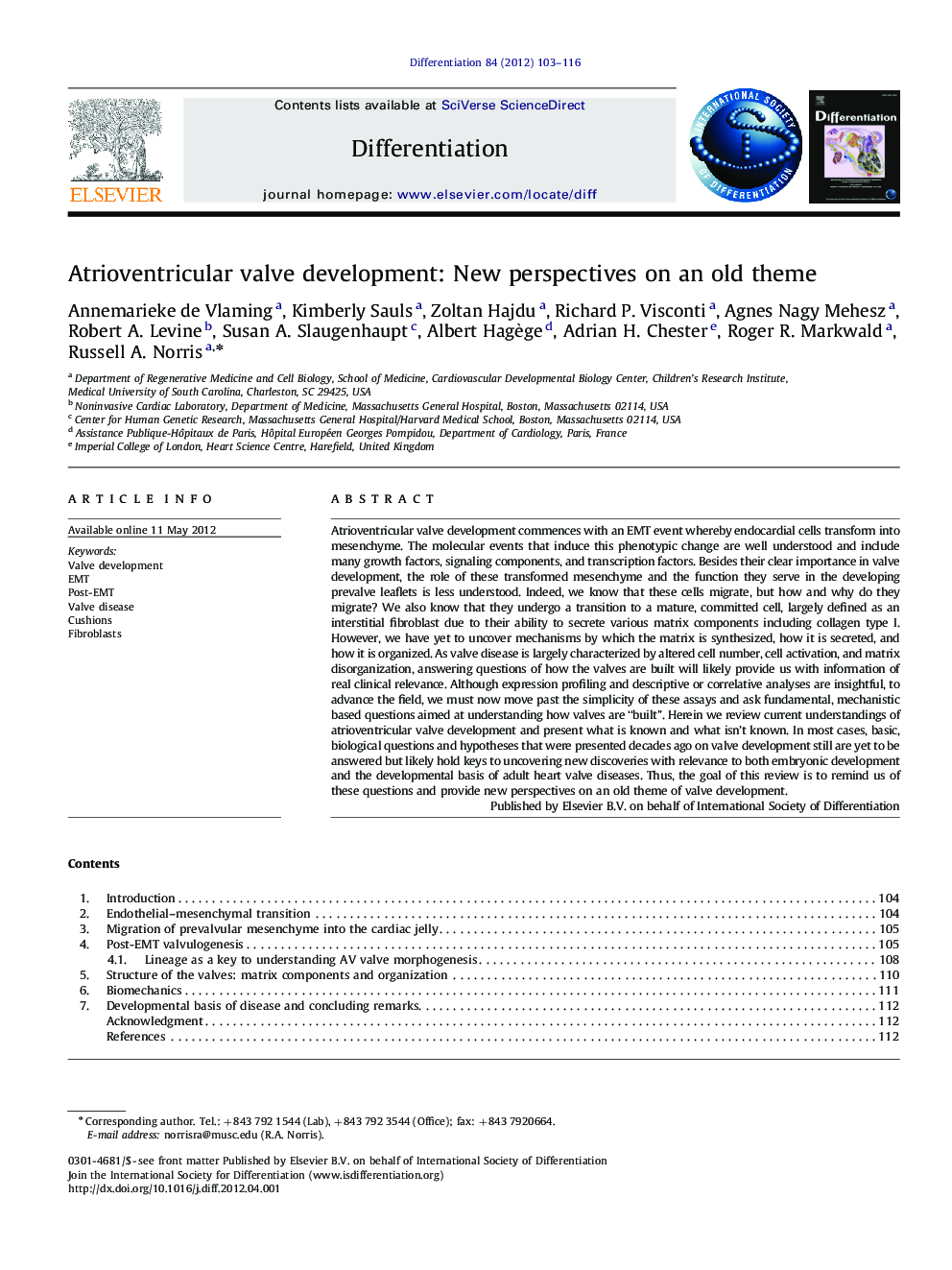| Article ID | Journal | Published Year | Pages | File Type |
|---|---|---|---|---|
| 2119563 | Differentiation | 2012 | 14 Pages |
Atrioventricular valve development commences with an EMT event whereby endocardial cells transform into mesenchyme. The molecular events that induce this phenotypic change are well understood and include many growth factors, signaling components, and transcription factors. Besides their clear importance in valve development, the role of these transformed mesenchyme and the function they serve in the developing prevalve leaflets is less understood. Indeed, we know that these cells migrate, but how and why do they migrate? We also know that they undergo a transition to a mature, committed cell, largely defined as an interstitial fibroblast due to their ability to secrete various matrix components including collagen type I. However, we have yet to uncover mechanisms by which the matrix is synthesized, how it is secreted, and how it is organized. As valve disease is largely characterized by altered cell number, cell activation, and matrix disorganization, answering questions of how the valves are built will likely provide us with information of real clinical relevance. Although expression profiling and descriptive or correlative analyses are insightful, to advance the field, we must now move past the simplicity of these assays and ask fundamental, mechanistic based questions aimed at understanding how valves are “built”. Herein we review current understandings of atrioventricular valve development and present what is known and what isn't known. In most cases, basic, biological questions and hypotheses that were presented decades ago on valve development still are yet to be answered but likely hold keys to uncovering new discoveries with relevance to both embryonic development and the developmental basis of adult heart valve diseases. Thus, the goal of this review is to remind us of these questions and provide new perspectives on an old theme of valve development.
